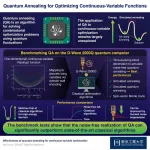Breakthrough in understanding the onset of sporadic Alzheimer's disease
Researchers at the Technion identify the mechanism leading to the accumulation of proteins involved in the development of Alzheimer's disease
2023-10-03
(Press-News.org)
New Discoveries in the Development of Alzheimer's Disease in a Study led by Professor Michael Glickman and Dr. Inbal Maniv from the Faculty of Biology at the Technion were Published in Nature Communications.
Alzheimer's disease was named after the German researcher Dr. Alois Alzheimer, who first described it in 1906. The disease is characterized by the degeneration and death of nerve cells, processes that lead to a progressive impairment of cognitive abilities. It occurs typically in adults over the age of 65, but a small percentage of all Alzheimer's patients are hereditary cases that affect younger patients.
Today, Alzheimer's disease is commonly divided into two types - familial and sporadic. Familial Alzheimer's disease is a rare condition, caused by genetic mutations. By contrast, the underlying mechanism of the more prevalent Sporadic Alzheimer's disease is unclear and was the focus of the study conducted by Dr. Maniv and Professor Glickman.
Toxic proteins accumulate in the brains of Alzheimer's patients. The mechanism of accumulation in familial patients is clear because there is an obvious link between the known mutations and the proteins that accumulate. In sporadic Alzheimer's disease, on the other hand, the trigger for protein accumulation is unknown.
As protein experts, Prof. Glickman’s research group proposed that the accumulation of toxic proteins in the brain is due to a disruption in the protein clearance mechanism, also known as the ubiquitin-proteasome system. To test their hypothesis, the group established a model system of human neurons, that allowed them to examine the involvement of the ubiquitin system in the development of the disease. In the published article, they describe their results: damage to the ubiquitin system leads to the accumulation of toxic proteins even in healthy tissue, mimicking the typical Alzheimer’s pathology.
To assess the importance of their findings, the researchers went on to engineer an RNA molecule that specifically silences one of the components of the ubiquitin system. Treatment with this molecule ameliorated the pathology in their experimental model. The team proposes that this RNA molecule could serve as a prototype for the development of effective treatments. The past few years have seen major advancements in the packaging and delivery of bio-active RNA molecules as therapies. With proper modifications and packaging, the interference RNA targeting the component that the team has identified could yield promising results in a clinical setting. This discovery highlights the importance of the ubiquitin system in clearing defective proteins to maintain the cells’ health. Disruption in this system could lead to the development of the disease.
The Technion researchers believe that beyond the findings presented in the article, the platform they developed may be used to screen drugs for the treatment and prevention of sporadic Alzheimer's disease. They add that this platform will help reduce animal experiments in the development of new Alzheimer's therapies.
Mahasen Sarji, Anwar Bdraneh, Dr. Yaron Fuchs, and other researchers from the Technion conducted the study, in collaboration with researchers from Tel Aviv University, Maastricht University in the Netherlands, and the University of Glasgow in Scotland. The research was supported by the Israel Science Foundation, the philanthropic Schmidt Futures, and the BIRAX - Alzheimer Society partnership.
END
ELSE PRESS RELEASES FROM THIS DATE:
2023-10-03
The ability to have access to the Internet or use a mobile phone anywhere in the world is taken more and more for granted, but the brightness of Internet and telecommunications satellites that enable global communications networks could pose problems for ground-based astronomy. University of Illinois Urbana-Champaign aerospace engineer Siegfried Eggl coordinated an international study confirming recently deployed satellites are as bright as stars seen by the unaided eye.
“From our observations, we learned that AST Space Mobile’s BlueWalker 3—a constellation prototype satellite featuring a ...
2023-10-03
OAK BROOK, Ill. – A new artificial intelligence (AI) model combines imaging information with clinical patient data to improve diagnostic performance on chest X-rays, according to a study published in Radiology, a journal of the Radiological Society of North America (RSNA).
Clinicians consider both imaging and non-imaging data when diagnosing diseases. However, current AI-based approaches are tailored to solve tasks with only one type of data at a time.
Transformer-based neural networks, a relatively new class of AI models, have the ability to combine imaging and ...
2023-10-03
A two-phase NIH grant will fund research into a new CRISPR-based gene therapy platform that will target genetic brain diseases like Angelman syndrome and H1-4 (HIST1H1E) syndrome.
A roughly $40 million National Institutes of Health (NIH) grant awarded to Yale School of Medicine will support the development of a gene-editing platform technology capable of reaching the human brain. The innovative new genome-editing technology, which was developed from the first phase from NIH Common Fund Somatic Cell Genome Editing (SCGE) program, could potentially lead to treatments or cures for many neurogenetic diseases.
Neurogenetic disorders ...
2023-10-03
When scientists viewed the James Webb Space Telescope’s (JWST) first images of the universe’s earliest galaxies, they were shocked. The young galaxies appeared too bright, too massive and too mature to have formed so soon after the Big Bang. It would be like an infant growing into an adult within just a couple years.
The startling discovery even caused some physicists to question the standard model of cosmology, wondering whether or not it should be upended.
Using new simulations, a Northwestern University-led ...
2023-10-03
Van Andel Institute’s Nick Burton, Ph.D., has earned a five-year, nearly $2.9 million New Innovator Award from the National Institutes of Health Common Fund to find new ways to fix or prevent insulin resistance, a key driver of Type 2 diabetes.
Although manageable with treatment, there currently is no way to repair the underlying mechanisms that cause the disease. Furthermore, it remains unclear why some people are more prone to Type 2 diabetes while others are resistant. To find a solution, Burton ...
2023-10-03
SAN ANTONIO — October 3, 2023 —A new study led by Southwest Research Institute (SwRI) Planetary Scientist and Associate Vice President Dr. Alan Stern posits that the large, approximately 5-kilometer-long mounds that dominate the appearance of the larger lobe of the pristine Kuiper Belt object Arrokoth are similar enough to suggest a common origin. The SwRI study suggests that these “building blocks” could guide further work on planetesimal formational models. Stern presented these findings this week ...
2023-10-03
NEW YORK, Oct. 3, 2023 — Mandë Holford, a professor in the Chemistry and Biochemistry departments at Hunter College and The City University of New York Graduate Center (CUNY Graduate Center), has won a National Institutes of Health Common Fund Pioneer Award for her trailblazing research exploring the therapeutic opportunities and properties of venoms from cephalopods and other marine mollusks. Holford received one of eight Pioneer Awards granted in 2023, which will total more than $47.7 million over five years.
This is the first time a CUNY ...
2023-10-03
AUGUSTA, Ga. (Oct. 4, 2022) – A synthetic peptide developed by researchers at the Medical College of Georgia could help reduce vascular problems associated with acute respiratory distress syndrome in COVID-19.
In severe cases, COVID-19 is associated with the syndrome, which happens when fluid builds up in the tiny, elastic air sacs in the lungs, keeping them from filling with enough air and keeping oxygen from reaching the bloodstream. “These are the people who get the sickest from ...
2023-10-03
MedAxiom, the premier source for cardiovascular organizational performance solutions, has released its 2023 Cardiovascular Provider Compensation and Production Survey Report that includes data from the largest number of providers since its debut. The report features a foreword from MedAxiom President and CEO Jerry Blackwell, MD, MBA, FACC, on the consistency of year-over-year data from 2021 to 2022, the importance of a robust pool of data to form the foundation of the report, and the application of data as a strategic planning tool.
2023 Report Highlights:
Compensation and production ...
2023-10-03
Quantum annealing (QA) is a cutting-edge algorithm that leverages the unique properties of quantum computing to tackle complex combinatorial optimization problems (a class of mathematical problems dealing with discrete-variable functions). Quantum computers use the rules of quantum physics to solve such problems potentially faster than classical computers. In essence, they can explore multiple solutions to a problem simultaneously, giving them a significant speed advantage for certain tasks over classical computers. In particular, QA harnesses the phenomenon of “quantum ...
LAST 30 PRESS RELEASES:
[Press-News.org] Breakthrough in understanding the onset of sporadic Alzheimer's disease
Researchers at the Technion identify the mechanism leading to the accumulation of proteins involved in the development of Alzheimer's disease







